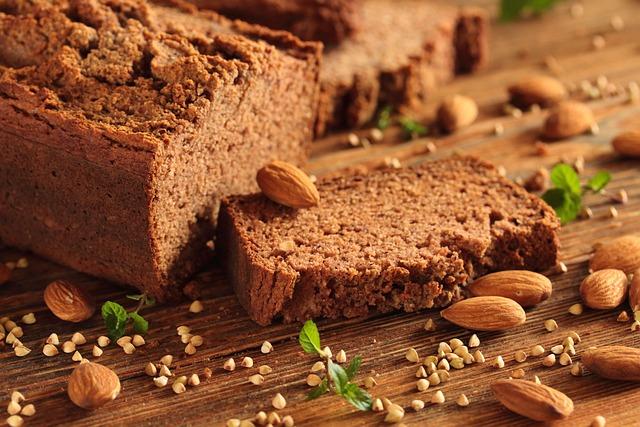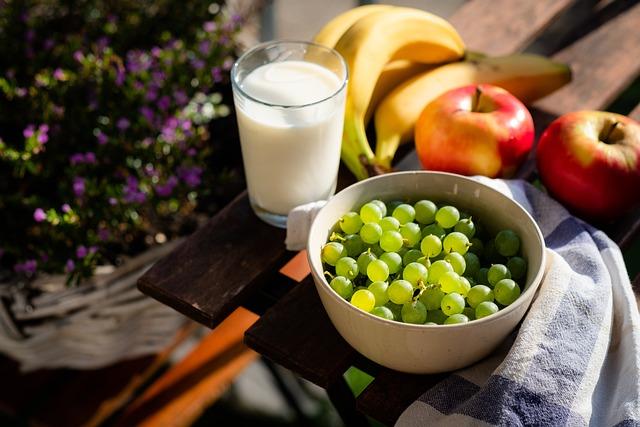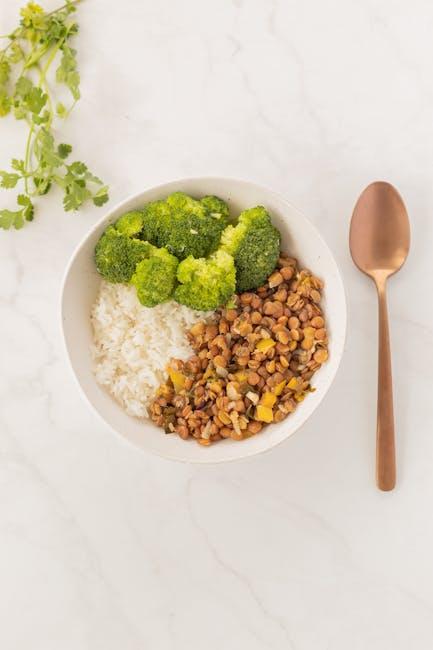In the vast tapestry of wellness trends, gluten has emerged as a polarizing figure, often cast as a dietary villain or dismissed as a misunderstood grain. While the gluten-free movement has largely been associated with digestive health, a new narrative is weaving its way into the conversation: the potential link between gluten consumption and skin health. Imagine a world where the secret to radiant, clear skin might lie not in the latest skincare potion, but in the humble contents of your pantry. As we delve into the intriguing possibility that reducing gluten could unlock a new level of dermal vitality, we explore the science, stories, and skepticism surrounding this dietary shift. Could the path to luminous skin be paved with gluten-free grains, or is this yet another chapter in the ever-evolving saga of skincare myths? Join us as we navigate the crossroads of nutrition and dermatology to uncover the truth behind the gluten-skin connection.
Understanding Glutens Role in Skin Conditions
Gluten, a protein found in wheat, barley, and rye, is often discussed in the context of digestive health, but its impact extends beyond the gut. Some individuals with gluten sensitivities or celiac disease report a range of skin conditions, prompting an exploration into the protein’s influence on skin health. While scientific research is still evolving, many believe that reducing gluten can alleviate certain skin issues. Key skin conditions potentially linked to gluten include:
- Dermatitis Herpetiformis: An intensely itchy and blistering skin condition directly associated with celiac disease.
- Psoriasis: Some studies suggest that gluten-free diets may reduce the severity of symptoms in certain individuals.
- Eczema: While evidence is mixed, some find symptom relief when eliminating gluten.
Though not everyone will experience skin improvements by cutting out gluten, those with known sensitivities might notice a difference. Consulting with a healthcare provider is recommended to tailor dietary changes effectively.
Exploring the Connection Between Diet and Dermatology
In recent years, there has been a growing interest in the impact of dietary choices on skin health. Among these, the role of gluten has been under the spotlight. Some individuals have reported improvements in their skin conditions after reducing or eliminating gluten from their diets. While scientific evidence is still evolving, this trend has sparked curiosity and prompted further investigation. For those considering a gluten-free diet for better skin, it’s essential to evaluate both the potential benefits and limitations.
- Potential Benefits: Many people with celiac disease or gluten sensitivity experience skin-related symptoms, such as dermatitis herpetiformis. For these individuals, a gluten-free diet can lead to significant improvements.
- Limitations: Not everyone will see changes in their skin health by reducing gluten, especially if they do not have a diagnosed sensitivity. It’s important to approach dietary changes with a balanced perspective.
Incorporating a variety of nutrient-rich foods while paying attention to how your body responds can be a more effective strategy than focusing solely on gluten. Always consider consulting a healthcare professional before making significant dietary adjustments.

Practical Steps to a Gluten-Reduced Diet for Healthier Skin
Embarking on a journey to reduce gluten in your diet for better skin health can be both exciting and daunting. Start by focusing on naturally gluten-free foods such as fresh fruits, vegetables, lean meats, and fish. These foods are not only nutrient-rich but also help in reducing inflammation, which is often linked to skin issues. Consider replacing wheat-based products with alternatives like quinoa, rice, or millet, which are gentle on the digestive system and can contribute to clearer skin.
- Explore Gluten-Free Grains: Try incorporating gluten-free grains such as buckwheat, amaranth, and teff into your meals. These grains are not only versatile but also packed with essential vitamins and minerals.
- Check Labels Carefully: Gluten can hide in unexpected places, from sauces to seasonings. Be vigilant about reading labels and opt for products that are clearly marked gluten-free.
- Experiment with New Recipes: Embrace the opportunity to discover new flavors and textures. There are countless gluten-free recipes available that are both delicious and satisfying.
- Stay Hydrated: Drinking plenty of water is crucial for maintaining healthy skin, especially when transitioning to a new diet.
Remember, the key is to make gradual changes and observe how your skin responds over time. By making these small yet impactful adjustments, you might find that a gluten-reduced diet not only enhances your skin but also your overall well-being.

Evaluating the Evidence: Gluten Reduction and Skin Health
When examining the potential link between gluten consumption and skin health, a mosaic of scientific studies and anecdotal evidence emerges. Some individuals report improvements in skin conditions such as acne, eczema, and psoriasis after reducing gluten in their diet. This suggests a possible connection between gluten intake and inflammatory responses that manifest on the skin. However, it’s crucial to approach this topic with a discerning eye, as these findings can be highly individualized and influenced by numerous factors beyond gluten alone.
- Limited Scientific Research: Current studies are limited and often inconclusive, highlighting the need for more extensive research to establish a definitive link.
- Personal Testimonials: Many people claim noticeable improvements in their skin after adopting a gluten-free lifestyle, though these accounts are subjective and vary greatly.
- Inflammation and Allergies: For some, gluten can trigger inflammation or allergic reactions, potentially exacerbating skin issues.
- Holistic Approach: It’s important to consider other dietary and lifestyle factors that might influence skin health alongside gluten reduction.
While the evidence is still evolving, those considering gluten reduction as a strategy for improving skin health should consult with healthcare professionals to ensure a comprehensive and personalized approach.
The Way Forward
In the ever-evolving landscape of wellness, the intersection of diet and skin health continues to intrigue and inspire. As we’ve explored, the potential for gluten reduction to enhance skin health is a topic brimming with possibilities, yet firmly rooted in individuality. While some may find that minimizing gluten unveils a newfound glow, others might experience little to no change. Ultimately, the journey towards healthier skin is a deeply personal one, woven from the threads of diet, lifestyle, and genetics. As you navigate this path, let curiosity be your guide and science your compass. Whether or not gluten is part of your story, the quest for radiant skin remains a testament to the intricate tapestry of our bodies and the choices we make to nurture them.


































